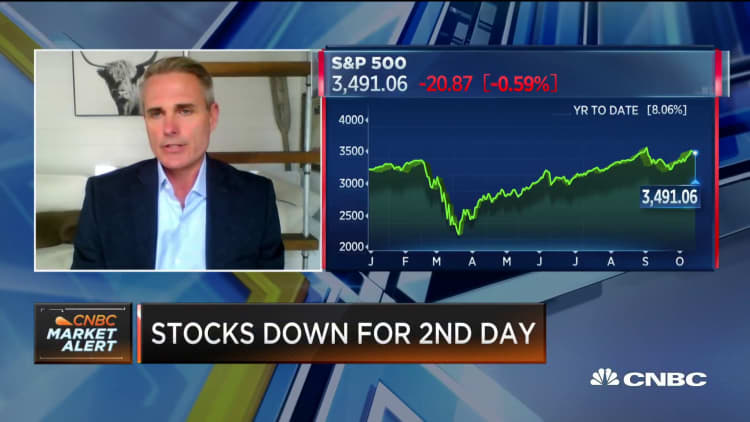Although the coronavirus pandemic has impacted tens of millions of Americans financially, a new analysis shows that younger workers have taken the biggest hits.
Gen Z, defined here as those ages 16 to 24, are the most likely to be unemployed or underemployed because of the pandemic, according to the Economic Policy Institute. These workers are also not as likely to be able to work from home as older generations and have a higher probability of working in industries that have been hit hard by the pandemic.
"Millions of workers of all ages have suffered devastating job losses in the current recession, but the economic impact on young workers has been even more intense," Elise Gould, senior economist with EPI, said in a statement.
Even before the pandemic, Gen Z had a higher-than-average unemployment rate: 8.4% in April, May and June 2019. But it jumped to 24.4% this past spring when the pandemic hit. Meanwhile, the unemployment rate for workers ages 25 and up was only 2.8% pre-pandemic and rose to 11.3% during April, May and June this year.
And within Gen Z, Asian American, Black and Hispanic workers have higher levels of unemployment than their White counterparts, Gould and co-author Melat Kassa found.
Gen Z's disproportionately high level of job loss is due, in part, because this generation tends to be concentrated in industries and sectors that have been hit particularly hard by the pandemic, EPI researchers found. About a quarter of Gen Z workers are employed in leisure and hospitality, and 18.9% had jobs in retail last year. The hospitality sector experienced a 41% decline in employment in February and March, EPI reports. Retail had a 12.8% decline.
Another reason for bigger job losses among Gen is the fact that younger workers were less likely than older workers to have the option to work from home. Only 6.7% of Gen Z workers reported being able to telecommute, compared to roughly a third of employees 25 to 64.
Beyond unemployment, Gen Z workers are twice as likely as older generations to be struggling with underemployment. More than a third of younger workers were underemployed, compared to 18.3% of workers over 25. And while unemployment among Gen Z workers didn't vary much by gender, it did by race. Gen Z Asian American, Black and Hispanic workers all saw spikes in underemployment.
Unfortunately, researchers expect the pandemic's effect on Gen Z to linger. "The job prospects for those seeking employment have been particularly bleak," Gould said. If the current recession follows the same course as the Great Recession, younger workers will continue to struggle to find jobs, especially if employers skew toward hiring more experienced workers as they have in the past.
Additionally, many younger workers have been left out of the relief efforts so far. Because many Gen Z workers are in college and still listed as dependents on their parents' taxes, they were not eligible for the $1,200 stimulus payments earlier this year. Their parents may not have received the extra $500 dependent payment either because the age cutoff was 17.
While Gen Z is particularly vulnerable during this downturn, they also have the potential to see huge benefits if the economy and job market can quickly return to a sustained low unemployment. In particular, younger workers tend to see faster wage growth when an economy is at full employment, according to EPI.
"The impact of a deep recession is devastating for young workers in the short and long term, but the benefit of full employment for young workers would be enormous," Kassa said. "Any hope of a strong and equitable recovery must center young workers."
Check out: The 6 best credit cards for shopping at Costco
Don't miss: 4 steps young people can take to start building wealth, even in a recession



